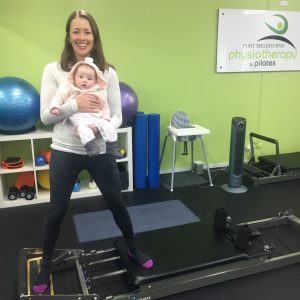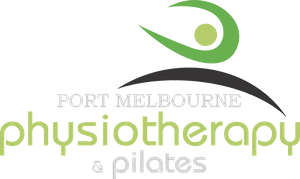Is it important to have a post natal physio follow-up? After having a baby it is routine (and expected) to see your obstetrician, midwife or GP for a 6 week post natal check-up.
This is completely different from a post natal physio check, which in many parts of Europe is deemed ESSENTIAL and paid for by the government. Unfortunately the Australian government hasn’t caught up with the rest of the world yet.
Post surgical rehabilitation with a physio is deemed necessary after joint surgery, heart surgery, and after breaking a bone. C-sections are major abdominal surgery, and many complications post vaginal birth are just as traumatic. Unfortunately rehabilitation postpartum is however not deemed essential. It’s really quite hard to believe in 2020 that this is still the case.
What is the difference between a post natal check-up and a post natal physio check?
A routine 6 week check up is performed by a GP, midwife or Obstetrician postpartum. They assess wound healing, any ongoing bleeding and uterus contraction. The baby’s growth and mother’s physical health is also assessed. There may discussions about mental health, family planning and breastfeeding.
A Post Natal Physio Check involves your physio taking a detailed birth history and determining the presence of symptoms such as pelvic or lower back pain or pelvic floor dysfunction. We will then undertake a physical examination to assess for any presence of DRAM (abdominal muscle separation). Real Time Ultrasound is used to assess your core and pelvic floor muscle activation.
What will your physio do with this information?
Based on the assessment your physio will determine readiness to return to exercise, including the type and amount. We will provide exercises to undertake at home to assist your recovery. Your treating physio may also refer you on for a specialist women’s health assessment if you have significant pelvic floor symptoms or have had a traumatic birth.
You may require treatment for mastitis, lower and upper back pain or pelvic pain. We may provide advice regarding wrist/hand/forearm pain that often develops with feeding and settling a newborn.
Why is the physio post natal check so important?
All too often we see women returning to high intensity exercise too soon for their bodies postpartum. They attend their 6 week post natal check with their obstetrician, are cleared medically for exercise and then rush straight back into what they were doing prior to becoming pregnant. Yet almost a whole year has passed and their body is now completely different.
Unfortunately this often leads to injury, whether that be back pain or a niggly knee, foot or shoulder injury. This is often due to inadequate strengthening and preparation for high intensity exercise. Ultimately this results in women requiring physio treatment and medication, and can set you back even further.
Personal Experience
First Pregnancy
My first pregnancy ended in an emergency C-section. I saw my OB at 6 weeks postpartum and he cleared me for exercise, including running, pilates, swimming. All I was told was just no weights at the gym until 12 weeks. I was back running 5km at 8 weeks postpartum thinking I had clearance and I would be fine. Even though I felt like I had recovered, I didn’t fully grasp the impact of sleep deprivation and just how much my body had been through. This included labouring for 10 hours and having major abdominal surgery. After a few runs I developed pelvic pain (which I hadn’t had during pregnancy) and lower back pain. I stopped running, had some physio treatment and committed to twice weekly pilates. I then returned to running with a program written for me by a running coach (Chris from GoRun) to gradually build back up.

Second Pregnancy
This time around I had my post natal check up over the phone due to COVID19, so my obstetrician didn’t even see my wound or check my tummy. Unfortunate circumstances, but it didn’t instill me with confidence to start exercising, other than the walking I was already doing. I booked in to see Alex for a post natal physio check at 8 weeks. We discovered on the Real Time Ultrasound that I really wasn’t activating my core or pelvic floor strongly enough. (I’m a physio and I still wasn’t activating properly!). I also had a 1.5cm DRAM. We went over core activation, exercises to do at home, made a plan for Pilates and she also treated my tight adductors which were causing some pubic symphysis pain. Even with my experience and knowledge I found the session invaluable.
Summary
Until the government prioritises women’s postpartum recovery, it is up to women to self-refer for a post natal physio check. Prevention is better than cure. After 9 months of carrying a baby and going through labour or surgery, thorough assessment and advice is essential prior to returning to exercise. You don’t need to choose between the two appointments. Your body needs (and deserves) both.
- Sal

